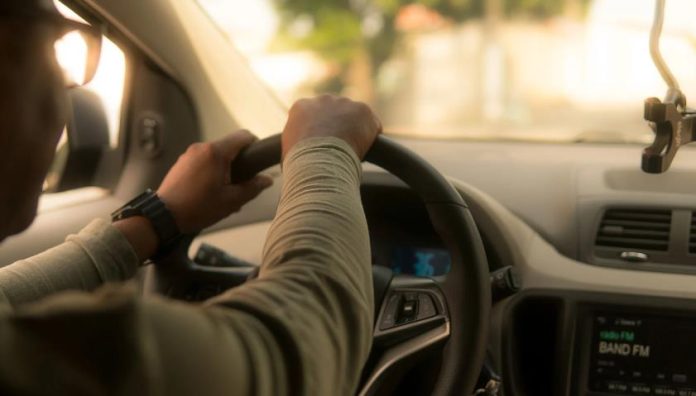Table of Contents
In the UK, there were 5.47 million businesses reported active at the start of 2022. Small businesses are increasing their activities as they’re providing more benefits to regular people who want an additional source of income. At the same time, people can approach varied industries and tasks in their SMEs, which allows them to get creative and seek what typical jobs lack.
However, small businesses need to take care of their investments well; otherwise, they risk ceasing their operations, similar to what happened to many organisations during the pandemic. Small business investors need to properly manage their financial approach by investing in qualitative materials, the latest technology, and a safe environment for employees.

Another investment that might improve the business or hinder it is a vehicle. Whether smaller or bigger, vehicles can help small enterprises carry their materials and services and advertise their products. At the same time, car costs can exceed profits in some cases, which is why we’ll discuss the benefits and disadvantages of buying a car as a small business.
The benefits of having a vehicle
Buying a car for your small businesses has some tax advantages as well as insurance. On the one hand, a vehicle can help you save money on certain expenses. Here are the good sides of owning a car:
- As a small business, you can deduct the costs of ownership plus gas and maintenance expenses. Depreciation and interest on the car loan are also deductible;
- The commercial auto policy can handle an accident because company cars for businesses require coverage for commercial auto policy for liability, damage or medical expenses;
- It’s beneficial for employees who need help getting to and from work, but a vehicle is also great for meeting customers and doing other work-related errands;
The downsides of buying a car

However, buying a car can also be disadvantageous at some point, which means you should sell it or use it more rarely because:
- The high upfront cost might be too much for your small business to handle, but even a loan might be challenging to tackle;
- The commercial auto policy is another expense you need to take care of, and your company’s liability increases the more you use the car;
- If you’re getting a used car, you’re likely to pay much more for the repairs and updates required;
Driving the car yourself is also risky, but leaving the vehicle to someone who might be unprepared to handle such an operation might lead to accidents. Whoever drives the vehicle is exposed to these dangers, but you can get car crash compensation and cover the costs of such an occurrence.
Are you ready to buy a car for your small business?
When deciding you need a car to perform your small business’s tasks, you need to take some time and reflect on this decision. That’s because you need to be 100% financially prepared to face all the costs, as well as hire someone who’s a good driver and you trust with driving around the city or wherever needed.
The first step in taking such an important decision is to determine what your small business can afford. Remember to take into account expenses for gas, insurance, maintenance and even interest. If you can still prioritise other costs and make a profit while taking care of the vehicle, then you should do it.

You also need to pick a car that fits your needs because, most of the time, a regular one isn’t enough. For example, vans are best for deliveries and transporting passengers. At the same time, standard cars and SUVs are best if you’re constantly travelling, while trucks are necessary for heavy cargo.
However, considering you’re a small business, you might need to buy used cars, as newer models are pretty expensive. It’s important to be aware of the risks of a second-hand car and avoid using it on poor roads or in bad driving conditions. You can also consider leasing, as you can access multiple car options while leveraging a predictable monthly payment.
How to save money on car expenses?
If you really need a car but are afraid of its expenses in the long run, you must think about tricks to save money while ensuring safety and operability. For example, you may consider a smaller model of a car instead of a bigger one, especially if you don’t need to carry heavy objects around the area. These models are usually cheaper and get better gasoline mileage, while insurance is lower.
Before buying a vehicle, it’s also advised to check its fuel efficiency and make sure you’re not pumping too much money on the gas. Fuel-efficient cars require less fuel and burn less of it on more extended travel periods compared to regular vehicles.

Saving money on car maintenance is also possible. So, you should get regular check-ups and ensure the vehicle is tuned correctly so that you can improve its fuel efficiency in the long run.
Changing the oil frequently, or when recommended, will keep your car in good condition, and you’ll extend the life of your car’s engine. Also, getting the right tires and keeping them inflated will spare you frequent expenses on maintenance.
Finally, you can save money on gas and driving if you don’t overflow the tank when pumping gas, so always leave some empty space instead of filling it. Other habits that can save you money in regard to driving include things such as accelerating gently instead of pressing your feet on the acceleration too soon, anticipating slowdowns, and never slamming the brakes often when there’s a traffic jam. If you’re doing it in a safe space, it would also be best to warm up your car while driving instead of letting it idle.
Bottom line
For your first small business, getting a car can be necessary sometimes. If you didn’t avoid it, it would be best to purchase one that is first the company’s needs but also be prepared to face the costs since cars and gas are quite expensive.


